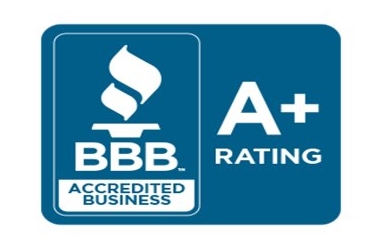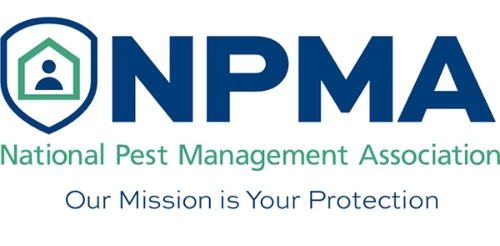Whether your furry friend has started scratching more than usual or you’ve noticed those pesky little jumpers around your home, realizing you have a flea problem can be frustrating and alarming. These tiny critters are annoying and can pose health threats to pets and humans. Fear not! Our in-depth guide is here to arm you with knowledge and strategies to tackle a flea infestation head-on.
Dive into the intricacies of flea management as we tackle the ten most burning questions about eliminating these unwelcome guests. From home remedies to preventative measures, treatment options, and the inside scoop on flea behavior—prepare to transform your approach to flea control and reclaim your home from these stubborn parasites.
What Home Remedies Are Effective for Getting Rid of Fleas?
Flea infestations can be daunting, but before you rush to the store for chemical treatments, consider some effective home remedies to help manage the problem. Here are some tried-and-tested methods:
- Diatomaceous Earth: This fine powder, composed of the fossilized remains of algae, can be sprinkled on carpets, pet bedding, and around the house. It causes dehydration and death in fleas when they come into contact with it.
- Baking Soda: When combined with vacuuming, baking soda can help remove fleas from your carpets. Sprinkle it on your carpets, brush it in, and vacuum thoroughly.
- Salt: Similar to baking soda, salt is a desiccant used to dry out flea eggs and larvae. Sprinkle finely ground salt over carpets, leave for 12-48 hours, and vacuum up.
- Apple Cider Vinegar: While it doesn’t kill fleas, adding a small amount of apple cider vinegar to your pet’s drinking water can make their skin less appealing to fleas.
- Lemon Spray: Fleas dislike citrus. Boil a pot of water with a sliced lemon, let it cool overnight, and apply it to affected areas or pet fur using a spray bottle.
Remember, these remedies can help control fleas but may not be sufficient to eradicate a severe infestation. Combining these methods with regular cleaning and pet grooming can improve their effectiveness.
How Can I Prevent Fleas from Infesting My Pet in the First Place?
Preventing flea infestation is far less stressful than dealing with one. To keep these tiny pests at bay, follow these preventative strategies:
- Regular Flea Treatments: Use vet-recommended flea treatments such as spot-on treatments, oral medication, or flea collars.
- Keep Your Home Clean: Frequent vacuuming, particularly in areas where your pet spends a lot of time, can help. Remember to dispose of the vacuum bag outside immediately after cleaning.
- Maintain Your Yard: Trim grass and bushes to reduce outdoor areas where fleas may hide and breed. Using nematodes or flea-preventative plants can discourage fleas outdoors.
- Groom Your Pet Regularly: Bathing and combing your pet with a flea comb can help you identify and eliminate fleas before they become a more significant issue.
- Pet Bedding: Wash your pet’s bedding regularly in hot water to kill fleas and eggs.
By staying vigilant with these preventative measures, you can significantly reduce the chances of a flea infestation in your home or your pet. Remember to consult your vet for the most effective and pet-friendly preventative tactics.
What Are the Best Ways to Treat Flea Infestations in the Home?
If you’re facing a flea infestation in your home, it’s essential to tackle the problem methodically. Fleas can be incredibly stubborn, but with the right approach, you can get rid of them:
- Vacuum Everything: Fleas can hide in many places, so vacuum your carpets, furniture, and even crevices where eggs lurking.
- Steam Clean Carpets: Fleas don’t survive the heat and moisture of steam cleaning, killing eggs and larvae hidden in your carpets.
- Use Flea Sprays: Insecticidal sprays specifically designed to kill fleas can be used on various surfaces where fleas are present.
- Wash and Heat Dry: All bedding and removable furniture covers should be washed in hot water and heat-dried to kill fleas and eggs.
- Flea Foggers or Bombs: These can be used to treat large areas of your home all at once, but they require you to leave the house for some time and can be toxic to pets and humans if not used correctly.
- Hire a Professional: Sometimes, the infestation is too big for home remedies. Professionals have access to more powerful treatments and can ensure the infestation is thoroughly dealt with.
Make sure you treat your pets concurrently, as they are the primary hosts for fleas. It would help if you treated both the environment and your pets to see a re-infestation.
How Do I Know if My Pet Has Fleas?
Identifying a flea infestation early can save you and your pet from discomfort and more severe health issues. Here’s how to spot the signs:
- Scratching and Biting: Excessive scratching or biting at the skin is one of the first signs.
- Flea Dirt: Small black or reddish-brown specks on your pet’s fur or skin, bedding, or carpet. This “dirt” is actually flea feces and indicates active fleas.
- Red Patches and Hair Loss: Flea bites can cause irritation, leading to hot spots and hair loss.
- Fleas on Pets: You might see fleas moving fast in your pet’s fur, especially around the ears, groin, or base of the tail.
- Flea Eggs and Larvae: White, tiny eggs or larvae in your pet’s bedding or favorite spots can also indicate an infestation.
Regular inspections with a flea comb can catch fleas early, so check your pet frequently if you suspect fleas are in your environment.
Can Fleas Cause Any Health Issues for My Pet or Family?
Fleas are not just a nuisance; they can cause a range of health issues for both pets and humans:
- Flea Allergy Dermatitis: This is a severe allergic reaction to flea saliva, leading to intense itching, skin inflammation, and secondary skin infections in pets.
- Tapeworms: Pets can become infected if they ingest fleas carrying tapeworm larvae.
- Anemia: Severe flea infestations can cause anemia in young or small pets due to blood loss from flea bites.
- Diseases: In rare cases, fleas can transmit diseases like cat-scratch disease, typhus, and plague to humans.
Regular flea control and quick treatment of infestations are crucial to preventing these health issues.
How Often Should I Treat My Pet and Home for Fleas?
Consistent treatment is crucial to keeping fleas at bay. Here’s a guideline for maintaining a flea-free environment:
- Pet Treatments: Follow the recommended schedule for whichever flea prevention method you choose. Typically, topical treatments are monthly, oral medications can vary monthly to every three months, and flea collars can last from a month to several months.
- Home Cleaning: Vacuuming should be done at least weekly and more frequently if you have an active infestation. Bedding and any washable items should be washed in hot water every 1-2 weeks.
- Yard Maintenance: If fleas are an issue in your area, treat your yard for fleas every 4-6 weeks during the warm months when fleas are most active.
Adhering to a regular treatment schedule will help prevent reinfestations and keep your pet and home flea-free.
What Should I Do if Natural Remedies Aren’t Working?
When natural approaches aren’t enough to combat a flea infestation, it’s time to consider more robust measures:
- Consult Your Vet: They may prescribe your pet stronger veterinary-grade oral or topical flea treatments.
- Insect Growth Regulators (IGRs): Using IGRs in your home can prevent flea eggs and larvae from developing into adult fleas.
- Traditional Insecticides: If the situation demands, select an EPA-registered flea control product for your home and use it according to the label instructions.
- Professional Pest Control: For severe infestations, professional exterminators can apply powerful treatments tailored to your specific flea problem.
Combining these methods with ongoing natural prevention tactics is essential to keep fleas away for good.
Are There Any Environmentally Friendly Flea Control Methods?
For those looking for sustainable options for flea control, there are several methods to consider:
- Beneficial Nematodes: These microscopic worms can be introduced in your yard to kill flea larvae and pupae without harming plants or valuable insects.
- Essential Oils: Certain peppermint, cedarwood, and lemongrass can deter fleas. Be careful with cats, though, as some oils can be toxic.
- Boric Acid: While using this with caution around pets and children is necessary, boric acid can be an effective and less toxic option for treating infested areas.
- Flea Traps: Non-toxic sticky traps or light traps can capture adult fleas without harsh chemicals.
Always research and use environmentally friendly methods to ensure safety and effectiveness.
How Do I Handle Persistent Fleas in Outdoor Areas?
Controlling fleas outdoors requires a multifaceted approach:
- Keep Your Yard Tidy: Maintain your lawn and garden to reduce flea habitat. Remove debris and keep the grass short.
- Wildlife: Discourage wildlife, such as raccoons and opossums, which can carry fleas, from entering your yard.
- Cedar Chips: Fleas dislike the smell of cedar; consider spreading cedar chips where your pet likes to spend time.
- Treat Your Pet: Preventatively treat your pet with recommended flea control products to stop them from bringing fleas indoors.
- Professional Treatments: If DIY methods fail, professional flea treatments for your yard may be necessary.
Regular maintenance and treatment are vital to keeping outdoor flea populations under control.
Can Fleas Become Resistant to Treatments, and What Can I Do About It?
Flea resistance to specific treatments is possible. Here’s what you can do:
- Rotate Treatments: Use different classes of active ingredients in treatments to prevent resistance.
- Combination Treatments: Sometimes, using a combination of treatments (oral, topical, and environmental) can be more effective.
- Consult Professionals: Veterinarians and pest control experts can provide advice on current effective treatments.
Monitoring the effectiveness of flea treatments and staying informed about resistance can help you remain ahead of the problem.
Winning the Battle Against Fleas
Confronting a flea infestation can be challenging, but you can win the battle with the proper knowledge and tools. By identifying fleas early, implementing effective home remedies, and taking preventative measures, you are now well-equipped to protect your home and beloved pets from these persistent pests. Remember, consistency and perseverance are vital in treating and preventing future infestations. If, at any point, the situation becomes overwhelming, don’t hesitate to seek professional advice and services. Now, take action and reclaim your space from fleas, ensuring the health and comfort of your family and furry friends.



